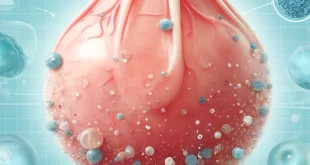Max Planck Research School:
“The Exploration of Ecological Interactions with Molecular and Chemical Techniques”
The International Max Planck Research School (IMPRS) “The Exploration of Ecological Interactions with Molecular and Chemical Techniques” in Jena, Germany, invites applications for 3 PhD positions beginning in October 2020 – January 2021. The overarching research topic is the use of molecular, chemical and neurobiological techniques to experimentally explore ecological interactions under natural conditions. The main focus is on the relationship between plants, microbes and herbivores, and their environment, as well as the evolutionary and behavioral consequences of these interactions. We offer 10 exciting projects focusing on different organisms and approaches. The complete list of projects offered including project descriptions is available on our website (http://imprs.ice.mpg.de/ext/index.php?id=420#header_logo).
We are looking for enthusiastic PhD students with strong interests in the above-described central topic. Applicants should have or be about to obtain a Masters or equivalent degree in one of the following fields: entomology, neurobiology, molecular biology, biochemistry, analytical chemistry, plant physiology, genetics, ecology, evolutionary biology, bioinformatics, and mathematics and computer science. All our projects are highly integrative and require willingness to closely collaborate with researchers of different backgrounds.
The Research School is a joint initiative of the Max Planck Institute for Chemical Ecology and the Friedrich Schiller University. We offer state-of-the art equipment, an excellent research environment, supervision by a thesis committee and a structured training program including scientific courses, training in transferable and outreach skills and participation in research symposia. Successful candidates will receive a Max Planck support contract. There are no tuition fees and the working language is English.
Application deadline is May 8, 2020.
For detailed information on the IMPRS, projects offered and application requirements, please visit our website: http://imprs.ice.mpg.de/.
Please apply online from April 2, 2020, at: https://imprs-reg.ice.mpg.de/.
Please find below a list of projects we offer for this year’s recruitment. All projects are highly integrative and require the collaboration between different research groups. Applicants can identify up to three projects of interest. It is possible to change project preferences during the recruitment in Jena.
Project 1: Communication in plant communities via a hyphal network connecting the roots of neighboring plants
Supervisors: Prof. Dr. Ralf Oelmüller, Plant Physiology, Matthias Schleiden Institute, Friedrich Schiller University Jena, Priv. Doz. Dr. Axel Mithöfer, Department of Bioorganic Chemistry, Max Planck Institute for Chemical Ecology
Project 2: Mycorrhizal communication: between plant response and fungal symbiosis
Supervisors: Prof. Dr. Erika Kothe, Institute for Microbiology, Friedrich Schiller University Jena, Prof. Dr. Jonathan Gershenzon, Department of Biochemistry, Max Planck Institute for Chemical Ecology, Dr. Katrin Krause, Institute for Microbiology, Friedrich Schiller University Jena
Project 3: The role of the transcription factor FLC in growth habit, fruit dimorphism and plant defense of Aethionema arabicum
Supervisors: Prof. Dr. Günter Theißen, Genetics, Matthias Schleiden Institute, Friedrich Schiller University Jena, Prof. Dr. Jonathan Gershenzon, Department of Biochemistry, Max Planck Institute for Chemical Ecology, Prof. Dr. Ralf Oelmüller, Plant Physiology, Matthias Schleiden Institute, Friedrich Schiller University Jena
Project 4: Convergent evolution of metabolic pathways: The biosynthesis of benzoxazinoids in dicotyledonous plants
Supervisors: Prof. Dr. Sarah O’Connor, Department of Natural Product Biochemistry, Max Planck Institute for Chemical Ecology, Dr. Tobias Köllner, Department of Biochemistry, Max Planck Institute for Chemical Ecology
Project 5: Towards GC-MS: Adapting SIRIUS and CSI: FingerID for electron ionization fragmentation
Supervisors: Prof. Dr. Sebastian Böcker, Chair of Bioinformatics, Friedrich Schiller University Jena, Prof. Dr. Georg Pohnert, Chair of Instrumental Analytics, Friedrich Schiller University Jena, Dr. Alles Svatos, Research Group Mass Spectrometry, Max Planck Institute for Chemical Ecology
Project 6: Small bugs – global effects: Microbial communication with consequences for climate functioning
Supervisors: Prof. Dr. Georg Pohnert, Chair of Instrumental Analytics, Friedrich Schiller University Jena, Prof. Dr. Jonathan Gershenzon, Department of Biochemistry, Max Planck Institute for Chemical Ecology, Dr. Marine Vallet, Max Planck Fellow Group, Max Planck Institute for Chemical Ecology
Project 7: The gut microbiota of the spruce bark beetle: Best friends of a tree killer?
Supervisors: Prof. Dr. Jonathan Gershenzon, Department of Biochemistry, Max Planck Institute for Chemical Ecology, Prof. Dr. Martin Kaltenpoth, Department of Insect Symbiosis, Max Planck Institute for Chemical Ecology
Project 8: The effect of climate-relevant temperature shifts on leaf microbiota colonization
Supervisors: Dr. Matt Agler, Plant Microbiosis, Friedrich Schiller University, Jena, Dr. Daniel Giddingss-Vassao, Department of Biochemistry, Max Planck Institute for Chemical Ecology, Prof. Dr. Jonathan Gershenzon, Department of Biochemistry, Max Planck Institute for Chemical Ecology
Project 9: Evolution of the olfactory system in feeding versus non-feeding moths
Supervisors: Prof. Dr. Nicole M. van Dam, Molecular Interaction Ecology, German Centre for Integrative Biodiversity Research (iDiv) Halle-Jena-Leipzig & Friedrich Schiller University Jena, Dr. Sonja Bisch-Knaden, Lepidopteran Neuroethology, Department of Evolutionary Neuroethology, Max Planck Institute for Chemical Ecology
Project 10: The contribution of microbiome communities in the gut of the mealybug Pseudococcus jackbeardsleyi to the detoxification of cocaine and other tropane alkaloids
Supervisors: Dr. John D’Auria, Leibniz Institute for Plant Genetics and Crop Plant Research (IPK), Gatersleben, Prof. Dr. Jonathan Gershenzon, Department of Biochemistry, Max Planck Institute for Chemical Ecology
 medjouel.com Study Non Stop
medjouel.com Study Non Stop



